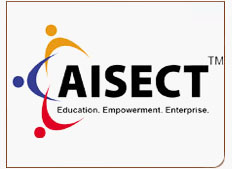AJEE Exam is expected to be held in the month of May 2022. The candidates looking to appear for this exam should start their preparation. The first step of good preparation is to understand the AJEE Syllabus 2022. This exam is conducted for admission to a large number of courses. The AJEE Syllabus 2022 will be different for all the courses. Along with the syllabus, the candidate should also go through the exam pattern for an exemplary preparation. In this post, we will discuss complete details regarding the AJEE Syllabus 2022 for different courses.
AJEE Syllabus 2022
AJEE Syllabus 2022 for different courses will be as follows:
Bachelor of Engineering (BE)
- Mathematics: Sets, Relations and Functions, complex numbers and quadratic equations, Matrices and Determinants, Permutations and combinations, Mathematical Induction, Binomial Theorem and simple Applications, Sequences and series, Limit, continuity and differentiability, integral calculus, differential equations, co-ordinate geometry, three dimensional geometry, vector algebra, statistics and probability, trigonometry and Mathematical Reasoning.
- Physics: Properties of Solid and liquids, physics and measurement, work, energy and power, kinetic theory of gases, oscillations and waves, rotational energy, thermodynamics, laws of motion, kinematics, gravitation, electrostatics, current electricity, magnetic effects of current and magnetism, electromagnetic induction and alternating currents, electromagnetic waves, optics, dual nature of matter and radiation, atoms and nuclei, electronic devices, communication system and Experimental skills.
- Chemistry: The syllabus of chemistry will be further divided as given below:
- Physical Chemistry: Some basic concepts, states of matter, atomic structure, chemical bonding and molecular structure, chemical thermodynamics, solutions, equilibrium, redox reactions and electrochemistry, chemical kinetics and surface chemistry.
- Inorganic Chemistry: Classification of elements and periodicity in properties, general principles and processes of isolation of metals, hydrogen, s-block elements, p-block elements, co-ordinate compounds, environmental chemistry.
- Organic Chemistry: Purification and characterization of organic compounds, some basic principles of organic chemistry, hydrocarbons, organic compounds containing halogens, organic compounds containing oxygen, organic compounds containing nitrogen, polymers, Bio-molecules, chemistry in everyday life, principles related to practical chemistry.
BA LLB Syllabus
- English including comprehension: The questions will be designed to test the candidate’ proficiency in English based on comprehension passages and grammar.
- General knowledge and current affairs
- Mathematics: The questions will be based on elementary mathematics (taught up to class 10th)
- Legal Aptitude: This section will test the candidate’s interest toward the study of law, research aptitude and problem solving skills.
- Logical Reasoning: Identifying patterns, logical links, rectifying illogical arguments, syllogisms, analogies, logical sequences etc.
Note: There will be no visual reason in the BA LLB entrance exam.
LLM
Constitutional Law of India, Jurisprudence, Law of contract, Indian Penal Code, Law of torts, Hindu law, Muslim law, public international law and human right, administrative law, transfer of property law, general knowledge.
MBA
The AJJE MBA Syllabus 2022 will be as follows:
Data Interpretation : DI based on text, graphs and tables. Graphs can be Bar graphs, column graphs, pie chart, line charts, Venn diagrams etc.
Quantitative: Ratios and Proportions, Ratios, Average, percentages, work and time, partnership & Time – speed – distance, Probability, permutations & combinations.
Reasoning: Critical reasoning, Assumption – Premise – Conclusion, Visual reasoning, statement and assumptions, identifying strong arguments and weak arguments, identifying valid inferences, statements and conclusions, identifying probably true, definitely false and definitely true kind of statement, cause and effect, Matrix arrangements and linear arrangement.
English: Comprehension of passage, sentence correction, sentence completion, odd man out, one word substitution, different usage of the same word, idioms, Fill in the blanks, syllogisms, jumbled paragraphs with 4 to 5 Sentences etc.
GK/ CA/ BA: Famous award and prizes, current affairs, business, top officials of big companies, punch lines of companies, major corporate events, science, history, international organizations, geography, sports, social issues, automobiles, finances, entertainment, politics etc.
B.Ed. Entrance Examination
General Mental Ability: Seeing relationship, reasoning, analogies, numerical ability and spatial relationship, number series, odd man out, letter series, relationship through letters, number and figures, matching figures, mathematical operations, code language, cube problems and pattern of different kinds etc.
General Awareness: Indian history cultural development after 1947, history of Indian independence, historical events, political science fundamental duties and right, language, national unity, cultural unity, important provisions of constitution regarding education, national symbol and national personalities, parliament assemblies, Current affairs and sports, geography natural resources and wealth, environment and ecology.
M.ED syllabus
Part 1 (General Mental Ability): Number Series: Letter Series, Coding & decoding, classification, relationships including spatial, analogies, venn diagram and logical diagrams.
Part 2 (General Awareness): social historical & cultural development of ancient and modern, Awareness of India’s political economic.
Part 3 (Language Comprehension): Ability to read a passage related to the education (English and Hindi) as well as answer language and comprehension question based on it.
Part 4 (Research Aptitude): Deductive and inductive reasoning, general methods of enquiry including scientific approach, simple descriptive statistics, sources, collection and interpretation of data, graphical presentation of data.
Part 5 (Teaching Aptitude): Contests of education – socio political, historical, economical and philosophical, Methods of teaching learning, innovations on teaching learning, disability and inclusion issues, learner’s characteristics, Teaching – learning nature objective characteristics and process, information and communication technology in education, evaluation of teaching learning, teaching learning aids etc.
For the detailed syllabus of the rest of the courses, candidates may visit the information brochure of AJEE available on the official website.




